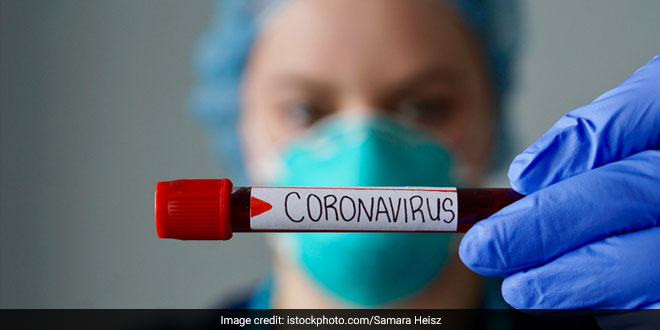Highlights
- The study on COVID-19 symptoms was published in Annals of Neurology
- The researchers reviewed neurological symptoms of COVID-19 patients
- The disease may affect the entire nervous system: Researchers
Chicago: A Northwestern Medicine study suggests that coronavirus poses a global threat to the entire nervous system, and its neurological symptoms may appear before fever or cough. A review of neurological symptoms of COVID-19 patients in the current scientific literature was conducted and the results are published this week in Annals of Neurology. About half of hospitalized patients have neurological manifestations of COVID-19, which include headache, dizziness, decreased alertness, difficulty concentrating, disorders of smell and taste, seizures, strokes, weakness, and muscle pain.
It’s important for the general public and physicians to be aware of this, because a SARS-COV-2 infection may present with neurologic symptoms initially, before any fever, cough or respiratory problems occur, said lead author of the review, Dr Igor Koralnik, Northwestern Medicine chief of neuro-infectious diseases and global neurology and a professor of neurology at Northwestern University Feinberg School of Medicine.
Also Read: Indian Council of Medical Research Issues Advisory On Antigen Detection Test For COVID-19
The review describes the different neurological conditions that may occur in COVID-19 patients and how to diagnose them, as well as likely pathogenic mechanisms.
This understanding is key to direct appropriate clinical management and treatment, Dr Koralnik said.
The disease may affect the entire nervous system, including the brain, spinal cord, and nerves as well as the muscles. There are many different ways COVID-19 can cause neurological dysfunction, he said. Because this disease may affect multiple organs (lung, kidney, heart), the brain may also suffer from lack of oxygenation or from clotting disorders that may lead to ischemic or hemorrhagic strokes.
Also Read: Ramping Up Bed Capacity Should Be Topmost Priority In Handling COVID-19: LG Baijal
In addition, the virus may cause a direct infection of the brain and meninges. Finally, the reaction of the immune system to the infection may cause inflammation that can damage the brain and nerves.
Dr Koralnik and colleagues have formed a Neuro-COVID research team and started a retrospective analysis of all COVID-19 patients hospitalized at Northwestern Medicine to determine the frequency and type of neurological complications, as well as response to treatment. Since knowledge about the long term outcome of neurologic manifestations of COVID-19, is limited, Koralnik also will follow some of those patients prospectively in his new outpatient Neuro-COVID clinic to determine if neurological problems are temporary or permanent. These studies will provide the foundation on how to diagnose, manage and treat the many neurologic manifestations of COVID-19, he said.
[corona_data_new]















